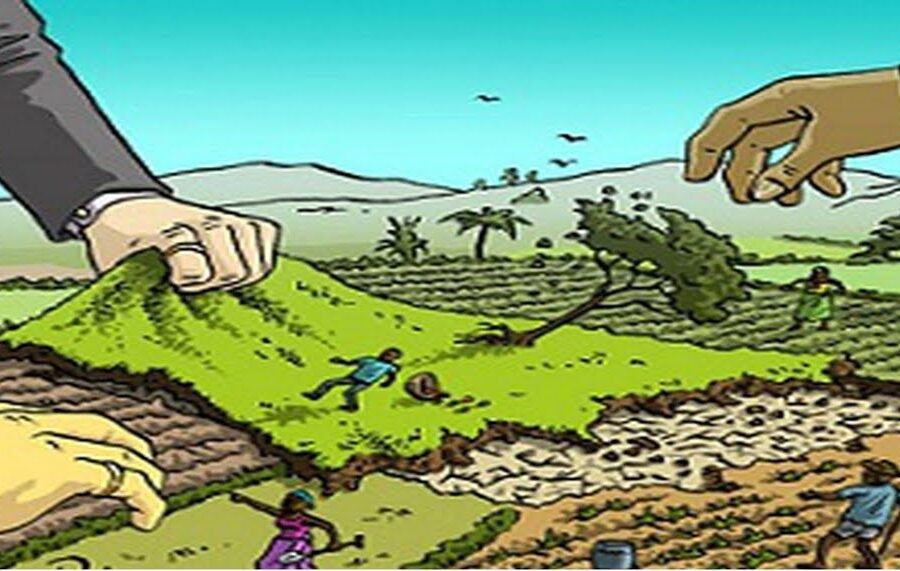Land Acquisition Act, 1894 of British Legacy Comes to an End

Tags: land acquisition act 1894 no more
Related Issue: The right to land, livelihood, and rehabilitation under Articles 19, 21, and 300A of the Indian Constitution, particularly in the context of displacement, forced evictions, and the role of Gram Sabhas in land acquisition decisions.
This is the time to hail the struggle, salute the martyrs and take the people’s movements forward.
Today along with the ending of the year 2013 the Act of British legacy on Land Acquisition, 1894 also came to an end. It was this Act that brought in undemocratic and unjust eviction and displacement of crores of our brethren as also martyrdom of many, dalits, adivasis, farmers, fish workers and others. The Act has led to uprootment of many communities and destroyed their socio-cultural environs including agriculture and livelihoods. It has led to destruction of ecosystems and natural resources, extracting and harnessing those but not benefitting the real needy populations. It has changed the paradigm of economies and development technologies, diverting the land, water, forest, aquatic and mineral wealth, toward cities and corporates more often than the poor and needy populations.
This Act is now replaced with a new Act, a part victory of decades long struggle of adivasis, dalits, farmers, fish workers as well as urban poor. The non-violent yet many militant struggles from Narmada to Nandigram, Koel Karo to Kalinganagar, POSCO to Vedanta, Mumbai slums to Ranchi, Hyderabad, Chennai and Bangalore have finally compelled the Central Government to change the legacy partly and bring in a new Act. This is the time to hail the struggle, salute the martyrs and take the people’s movements forward.
The new Act brings in some space for Gram Sabhas’ consent, consent of the 80% land-holders for private projects, Social Impact Analysis, upto 2.5 acres land per family to the adivasis in rehabilitation, and upholds minimization of land acquisition and diversion of multiple crop agricultural land etc. However, the Act has a number of short-comings and yet creates some space for people’s participation, consultation to consent, in different projects at different levels. While welcoming the change, therefore, we must take oath to broaden and strengthen our struggles for right to natural resources and sustainable just development planning with those.
Hundreds of farmers and fish workers, adivasis and others celebrated the end of British legacy by burning a torch and taking a resolve at the martyrs statue (Shaheed Stamb) at Barwani in the Narmada Valley, Madhya Pradesh. A small farmer and ardent struggler, Devram Kanera expressed deep faith in nonviolent struggle that has brought the result. He challenged the governments to show their might but appealed to them to follow the new Act and discard the inhuman ways and means to development. Advocate Prashant Patidar , Vijay Valvi, Jalal Bhai and other adivasis affected by the Sardar Sariovar Dam, Narmada Canals and the companies such as Ultratech Cement ushered in the Valley of Narmada expressed their vigour and commitment to save agri-culture, millions of trees, the river and fish which are the rich resources in the valley of Narmada, threatened with destructive projects. No project can now be imposed upon us, unless we give consent as Gram Sabhas and affected population based on the social, economic and environmental appraisal.
Sardar Sarovar Project, people asserted would also come under the purview of this new act since the land acquired continues to be in possessions of the farmers till date.
‘’Punjipatiyo Ki Jagir Nahi, Yeh Desh Humara Hai’’, was the voice raised by Kamla Behen, Meera Behen and others. Medha Patkar narrated the history of NBA and NAPM across the country that has finally created some political space for the Gram Sabhas and the Ward Sabhas, who can now have some opportunity to counter displacement in the name of development. Jal, Jungle, Zameen Haq Andolan should come up in every rural area to townships and cities wherever people have to stand and assert their rights. She appealed to the younger generation and all supporters standing for democracy and justice to join in whichever way possible. A torch-light (Mashal) was burnt amidst songs and slogans while a copy of the Land Acquisition Act, 1894 was burnt to ashes.
Kailash Awasya, Bhagirat Dhangar, Bilal Bhai, Chetan Salve, Meera